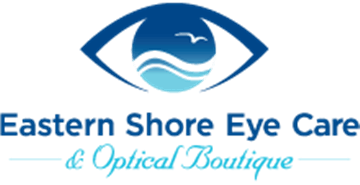Is your child's sight deteriorating?
This deterioration could be due to their screen time.
In today's digital era, screens have become an integral part of our lives, especially for our children. With online learning, gaming, and endless entertainment options, it's no surprise that kids spend more time than ever in front of digital devices.
However, this digital age has a concerning consequence – an alarming increase in myopia among children.
Excessive screen time can negatively impact your child's vision, leading to digital eye strain and myopia, commonly called nearsightedness.
But why is myopia such a cause for concern? It's not just about the inconvenience of wearing glasses or contact lenses. Myopia can pave the way for future sight-threatening eye diseases, including macular degeneration, glaucoma, cataracts, and retinal detachment.
The good news is that there's a proactive solution to combat this growing problem – myopia management.
The Impact of Digital Devices on Myopia
As screens increasingly dominate our daily routines, children's eyes endure prolonged periods of close-up work. Whether it's reading, gaming, or studying, the demands on their eyes have never been greater. This sustained focus on close-up tasks can lead to digital eye strain, characterized by symptoms like eye fatigue, headaches, and difficulty focusing on distant objects.
Moreover, the extensive use of screens significantly contributes to the increasing prevalence of myopia among children. Myopia occurs when the eyeball grows too long, causing light to focus in front of the retina rather than directly on it. As a result, distance vision becomes progressively blurry, affecting various aspects of your child's life, from school performance to sports activities.
While genetics play a role in myopia, environmental factors such as excessive screen time can accelerate its development.
The Consequences of Childhood Myopia
Childhood myopia affects a child's immediate visual comfort and has long-term implications. Nearsightedness tends to progress over time, resulting in increasingly blurred distance vision. As a result, children may struggle in school, have difficulty participating in sports, or simply enjoy outdoor activities.
However, the consequences of myopia extend beyond childhood. High myopia is associated with a higher risk of severe eye conditions in adulthood, including macular degeneration, a leading cause of blindness, glaucoma, cataracts, and retinal detachment. These conditions can significantly impact one's quality of life and independence.
Taking Control with Myopia Management
Fortunately, there is hope for preserving your child's vision and reducing their myopia progression. Myopia management is a comprehensive approach that combines various strategies to slow down the worsening of myopia.
One effective method is orthokeratology (ortho-k), which involves using specially designed contact lenses worn overnight to reshape the cornea temporarily. This technique provides clear vision during the day without needing glasses or daytime contacts.
Another approach includes atropine eye drops, which, when prescribed by an eye care professional, can help slow down myopia progression. Spending more time outdoors and reducing screen time is also crucial for myopia management.
Book Your Child's Myopia Management Consultation Today
Don't let excessive screen time jeopardize your child's vision and future eye health. Schedule a myopia management consultation with Eastern Shore Eye Care. Together, we can create a personalized plan to safeguard your child's eyes and reduce the risks associated with myopia.




